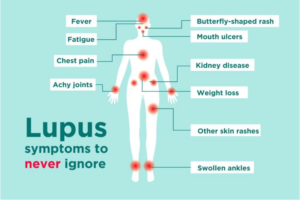Living with an autoimmune disorder can be a challenging journey, one filled with uncertainty and varying degrees of discomfort. From rheumatoid arthritis and lupus to multiple sclerosis and Crohn’s disease, these conditions not only impact physical health but can also affect emotional well-being and overall quality of life. As we navigate the complexities of autoimmune diseases, it becomes increasingly evident that a comprehensive approach to care is essential for effective management and improved outcomes. This is where integrative care steps in as a beacon of hope and support for individuals facing these conditions.
Integrative care, often referred to as holistic or complementary medicine, emphasizes the importance of treating the whole person rather than merely addressing symptoms. It combines conventional medical interventions with evidence-based complementary therapies, focusing on optimizing health and well-being from multiple perspectives. When it comes to autoimmune disorders, integrating various aspects of care can make a significant difference in how individuals cope with their conditions and lead fulfilling lives.
So, why is integrative care crucial for those with autoimmune disorders?
Comprehensive Management: Autoimmune disorders manifest differently in each individual, and their symptoms can range from mild discomfort to debilitating pain. Integrative care recognizes the complexity of these conditions and offers a range of treatment options tailored to individual needs. From medication management and physical therapy to dietary changes and stress reduction techniques, a comprehensive approach ensures that all aspects of health are addressed.
Reduced Reliance on Medications: While pharmaceutical interventions play a vital role in managing autoimmune disorders, they often come with side effects and limitations. Integrative care explores alternative therapies such as acupuncture, chiropractic care, and herbal supplements, which can complement traditional treatments and reduce the need for high doses of medications. By diversifying treatment modalities, individuals may experience better symptom control with fewer adverse effects.
Emotional Support and Stress Management: Living with an autoimmune disorder can be emotionally taxing, leading to feelings of anxiety, depression, and isolation. Integrative care incorporates mental health support, counseling, and mindfulness practices to help individuals cope with the emotional challenges they face. By addressing the psychological aspects of illness, patients can develop resilience and adopt healthier coping mechanisms, enhancing their overall well-being.
Optimized Nutrition and Lifestyle Changes: Diet and lifestyle play significant roles in modulating inflammation and immune function, both of which are central to autoimmune disorders. Integrative care includes nutritional counseling, dietary modifications, and lifestyle interventions aimed at reducing inflammation, supporting gut health, and enhancing overall vitality. By making informed choices about food, exercise, and sleep habits, individuals can empower themselves to take control of their health and manage their conditions more effectively.
Empowerment and Patient-Centered Care: One of the core principles of integrative care is empowering patients to become active participants in their healing journey. By fostering open communication, shared decision-making, and collaborative goal-setting, integrative practitioners prioritize the needs and preferences of each individual. This patient-centered approach cultivates trust, confidence, and a sense of ownership over one’s health, ultimately leading to better treatment adherence and outcomes.
In light of the importance of integrative care in managing autoimmune disorders, it’s essential for individuals to take proactive steps towards holistic wellness:
Educate Yourself: Take the time to learn about your condition, treatment options, and the role of integrative care in managing autoimmune disorders. Knowledge empowers you to make informed decisions and advocate for your health effectively.
Build a Support Network: Surround yourself with a supportive team of healthcare providers, family members, and friends who understand your journey and are committed to your well-being. Seeking support from others who share similar experiences can provide comfort and encouragement along the way.
Prioritize Self-Care: Incorporate self-care practices into your daily routine, such as mindfulness meditation, gentle exercise, and adequate rest. Pay attention to your body’s signals and honor your need for rest, rejuvenation, and relaxation.
Explore Integrative Therapies: Be open to exploring complementary therapies that resonate with you, whether it’s acupuncture, massage therapy, yoga, or herbal medicine. Consult with qualified practitioners who can guide you in integrating these modalities into your overall treatment plan.
Stay Connected: Keep the lines of communication open with your healthcare team and actively participate in discussions about your treatment plan, goals, and concerns. Your voice matters, and together with your providers, you can co-create a personalized care plan that aligns with your values and aspirations.
At Direct Access Rheumatology, in Las Vegas, we understand the unique challenges faced by individuals with autoimmune disorders, and we are committed to providing compassionate, comprehensive care that addresses the root causes of illness and promotes optimal health and vitality. If you or a loved one are struggling with an autoimmune condition, we encourage you to take the first step towards holistic wellness by scheduling an appointment with our integrative care team. Together, we can navigate your journey towards greater health, resilience, and well-being.
Call us today to embark on your path to healing and empowerment.
Remember, you’re not alone in this journey, and there is hope for a brighter, healthier tomorrow.
Disclaimer: This article is for informational purposes only and does not constitute medical advice. Always consult with a qualified healthcare professional before making any changes to your treatment plan or lifestyle.

Gout
Have you ever had severe joint pain and wondered, “do I have Gout?” Now, you ponder what is the next step? This blog will cover the basics of Gout.

Understanding RA: Frequently Asked Questions and How Direct Access Rheumatology Can Help RA:
Rheumatoid arthritis (RA) is the most common type of autoimmune arthritis. In Auto-immune conditions, your body’s immune system mistakenly attacks its own tissues. In RA, this causes inflammation in the joints and other organs, causing joint pain, swelling, stiffness and abnormal flexibility of the joints.

Beyond Medications: Diet, Meditation, Exercise, and Supplements
Our immune system protects our body from bacteria and viruses. Autoimmune conditions arise from dysfunctional immune system which can mistakenly attack its own tissues and organs. Although the exact cause of what causes the immune system to go haywire remains unknown, there are combination of factors which may play a role.

Systemic Lupus Erythematosus (SLE): FAQs and Integrative Care Strategies
Systemic Lupus Erythematosus (SLE), commonly known as lupus, is a multifaceted autoimmune disorder affecting various organs and systems within the body. Understanding this condition is pivotal for those living with it and their support networks. Let’s explore some common queries about lupus and delve into integrative care methods for holistic management.

Understanding Hashimoto’s Disease: Frequently Asked Questions and How Direct Access Rheumatology Can Help
Living with Inflammatory Bowel Disease (IBD) can present numerous challenges, both physically and emotionally. The impact of IBD extends beyond the digestive system, often affecting various aspects of daily life. At Direct Access Rheumatology, we understand the complexities of managing IBD, and we’re here to offer support and guidance to individuals in the Las Vegas area.

Sjögren’s Syndrome: FAQs and Integrative Care Insights
Systemic Lupus Erythematosus (SLE), commonly known as lupus, is a multifaceted autoimmune disorder affecting various organs and systems within the body. Understanding this condition is pivotal for those living with it and their support networks. Let’s explore some common queries about lupus and delve into integrative care methods for holistic management.



